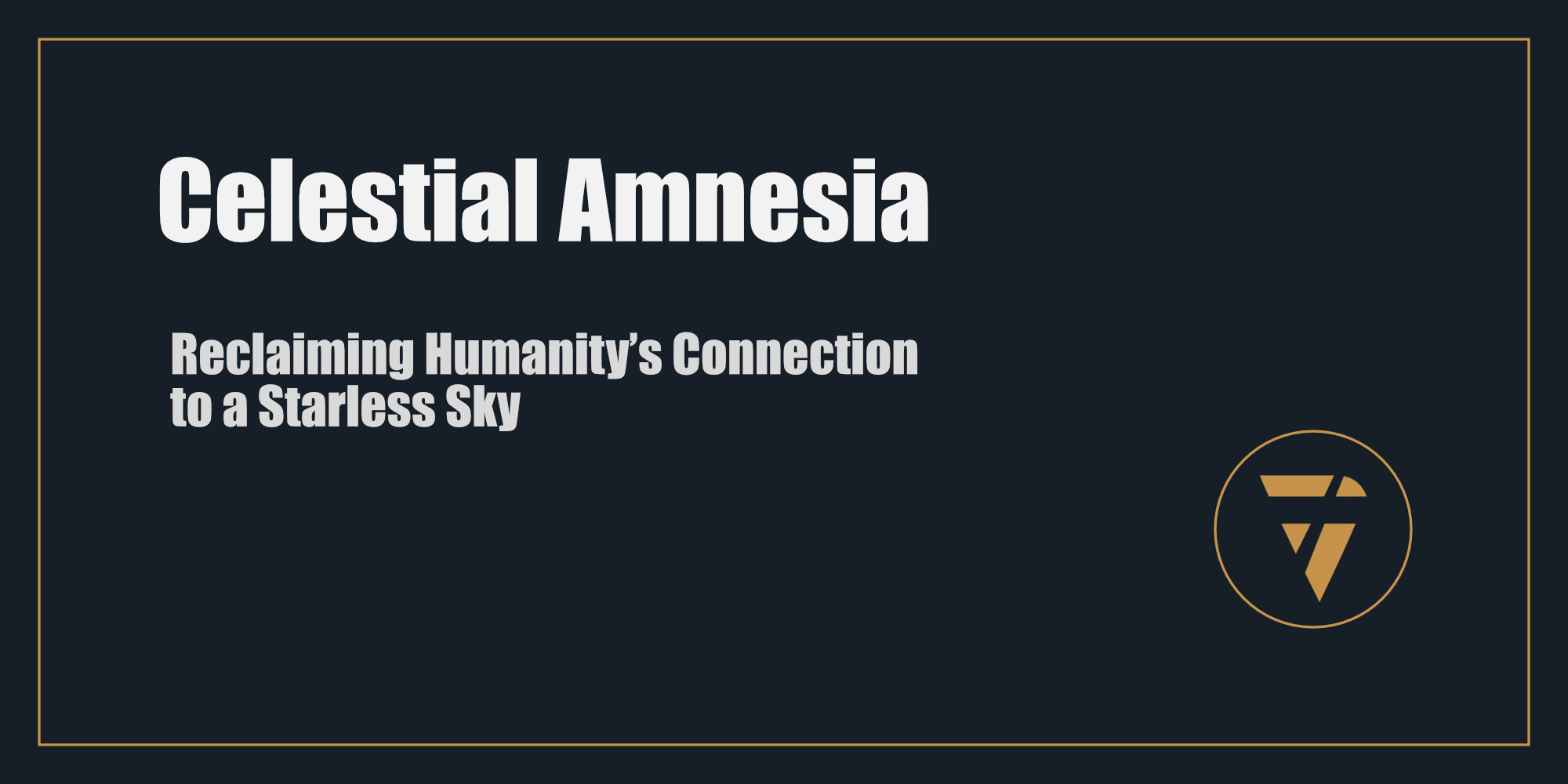Celestial Amnesia
Reclaiming Humanity’s Connection to a Starless Sky

What Have We Lost in Forgetting the Stars?
When was the last time you gazed at a truly dark night sky? Not a patch of urban blackness punctuated by the glow of billboards and streetlights, but a celestial tapestry stretching endlessly above, rich with the light of a billion distant worlds. For most, the answer is never. Over 80% of North Americans have never seen the Milky Way. And while light pollution steals the night, what it truly takes from us is harder to quantify.
The night sky is more than a backdrop for human existence. For millennia, it was our guide, our calendar, our inspiration. Our ancestors looked up and saw stories, gods, and a map of their place in the cosmos. Today, most of us see nothing but the faint outline of an overlit haze. In losing the stars, have we also lost part of ourselves?
The Night Sky as a Mirror to the Infinite
The stars have always been a reminder of our place in the grander scheme. Their vastness humbles us; their beauty inspires us. To look up is to confront questions that transcend daily concerns: Why are we here? What is our purpose? What lies beyond? These are not merely philosophical musings, they are the seeds of innovation, creativity, and progress.
But the loss of the night sky isn’t just a cultural or emotional tragedy; it’s a psychological one. Studies show that moments of awe, like those inspired by the vastness of the cosmos, enhance creativity, improve well-being, and foster a sense of connectedness. Without these moments, we risk becoming smaller versions of ourselves, trapped in a narrow view of the world.
The stars are not just a source of wonder, they are a gateway to perspective. They remind us that we are part of something far greater than the here and now. When we lose sight of them, we lose a critical reminder of both our insignificance and our potential.
Why Protecting the Night Sky Matters
Losing the stars isn’t inevitable. Light pollution, the primary culprit, is a human-made problem with human-made solutions. Communities worldwide have begun taking steps to reclaim their night skies, implementing dark-sky-friendly lighting and advocating for policies to reduce unnecessary artificial illumination. The results? Places where the Milky Way is visible once again. Where children can see shooting stars. Where the night feels alive.
Protecting the night sky is about more than just stargazing. It’s about preserving the awe that comes with realizing we are tiny in a vast universe. It’s about rediscovering our connection to nature, to each other, and to the mysteries that fuel our progress as a species.
We’re losing sight of the night sky. This First Nation is trying to protect it.
Your Invitation to Look Up
What if the solution to our disconnected, distracted, and divided world isn’t more noise, but more silence? Not another screen, but a single, shared sky? The night sky belongs to all of us. It’s a reminder of what we share, rather than what divides us. It’s an invitation to reflect, to imagine, and to dream.
So, let’s reclaim the stars. Turn off the unnecessary lights. Support dark-sky initiatives. And most importantly, find your own patch of darkness, look up, and remember what it feels like to stand in awe of the infinite.
What’s the View Like Where You Are?
Can you see the stars from where you live? Share your experience, and let’s talk about how we can bring back the night sky, not just for ourselves, but for generations to come.
Join us as we explore humanity’s relationship with the cosmos, and learn how we can rediscover the wonder of the forgotten heavens. Together, we can make the stars a part of our story again.
This Substack is reader-supported. To receive new posts and support my work, consider becoming a free or paid subscriber.
This is what I’m working on. Tell me what you think, I enjoy the conversation! Subscribe and follow the work in real time.
Thanks!
B
The stars aren’t gone; we’ve just forgotten how to see them. Reclaiming the night sky isn’t just about beauty, it’s about rediscovering awe, purpose, and our place in the cosmos.
PS -





